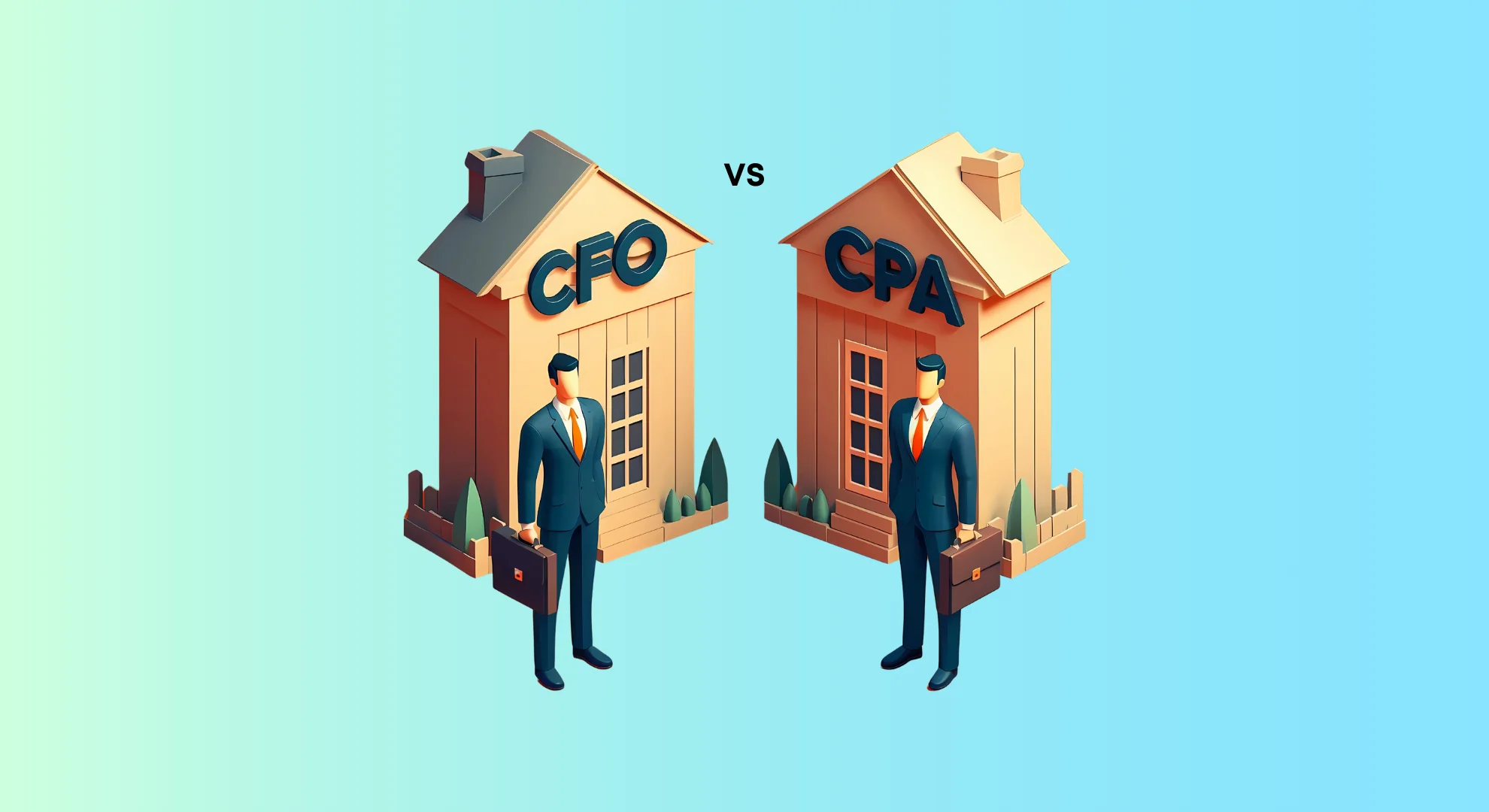Ever wonder who steers a company’s financial ship? The answer often lies in two crucial roles: the Chief Financial Officer (CFO) and the Certified Public Accountant (CPA). While both are financial experts, their responsibilities and focus areas differ significantly.
This blog dives into the world of CFOs vs CPAs, providing a clear picture of their roles, responsibilities, and the key differences that set them apart. Buckle up as we navigate the financial landscape and explore these two vital leadership positions!
Table of Contents
What is a CFO?
Imagine a company as a complex machine. The CFO acts as the financial engineer, overseeing the entire financial operation and ensuring smooth financial health. They are the strategic leaders of a company’s financial well-being.
Here’s a glimpse into what a CFO typically does:
- Financial Strategy & Planning: Develops long-term financial strategies, prepares budgets and forecasts, and manages financial risks.
- Capital Management: Oversees raising capital, managing investments, and optimizing cash flow.
- Financial Reporting & Compliance: Ensures accurate financial reporting, compliance with regulations, and internal controls.
- Relationship Building: Builds relationships with investors, lenders, and other financial stakeholders.
- Mergers & Acquisitions (M&A): Provides financial leadership for M&A activities.
In simpler terms, the CFO is the architect of a company’s financial future, making strategic decisions that drive growth and profitability.
What is a CPA?
Think of a CPA as a financial detective, meticulously analyzing financial information and ensuring its accuracy and compliance.
Here’s what a CPA typically does:
- Tax Preparation & Compliance: Prepares and files tax returns for individuals and businesses, ensuring compliance with tax laws.
- Financial Accounting & Reporting: Maintains accurate financial records, prepares financial statements, and performs audits.
- Accounting Systems & Controls: Implements and maintains accounting systems and internal controls for financial data integrity.
- Financial Analysis & Consulting: Provides financial analysis, identifies areas for improvement, and offers financial consulting services.
A CPA ensures the financial house is in order, providing various stakeholders with accurate and reliable financial data.

CFO vs CPA: What do they do?
Here’s a table summarizing the core functions of a CFO and a CPA:
| Function | CFO | CPA |
| Focus | Strategic financial leadership | Financial analysis and compliance |
| Responsibilities | Long-term financial strategy, budgeting, risk management | Tax preparation, financial accounting, and audits |
| Skills | Leadership, financial strategy, business knowledge | Accounting expertise, financial analysis, problem-solving |
| Stakeholders | Investors, lenders, board of directors | Internal management, regulatory agencies |
CFO vs CPA: Roles and Responsibilities
While both roles are crucial for a company’s financial success, their responsibilities differ significantly.
CFO:
- Spends a significant amount of time on strategic and future-oriented tasks.
- Focuses on maximizing shareholder value and long-term growth.
- Leads a team of financial professionals, including CPAs.
- Requires strong leadership, communication, and business acumen skills.
CPA:
- Focuses on historical financial data and ensuring its accuracy and compliance.
- Provides technical expertise in areas like tax and accounting standards.
- May work independently or as part of a larger accounting team.
- Requires strong analytical, problem-solving, and communication skills.
Remember, the specific responsibilities can vary depending on the company size and industry.
CFO vs CPA: Similarities
Despite their differences, CFOs and CPAs share some common ground:
- Both require strong financial expertise, and a solid understanding of accounting principles and financial analysis is crucial for both roles.
- Both play a vital role in financial decision-making. CFOs rely on accurate financial data provided by CPAs to make strategic decisions.
- Both impact a company’s financial health. While the focus areas differ, both contribute to achieving financial goals and objectives.
CFO vs CPA: Differences
Here’s a breakdown of the key differences between CFOs and CPAs:
| Feature | CFO | CPA |
| Focus | Strategic financial leadership | Financial analysis and compliance |
| Responsibilities | Long-term financial strategy, budgeting, risk management | Tax preparation, financial accounting, audits |
| Skills | Leadership, financial strategy, business knowledge | Accounting expertise, financial analysis, problem-solving |
| Time Horizon | Future-oriented | Historical and current financial data |
| Stakeholders | Investors, lenders, board of directors | Internal management, regulatory agencies |
Tailored Financial Solutions for Your Business Needs at Profitjets?
A CFO (Chief Financial Officer) and a CPA (Certified Public Accountant) play crucial but distinct roles in managing a company’s finances. At Profitjets, we offer tailored CFO services to help businesses develop effective financial strategies and drive growth. We also provide expert tax services and bookkeeping for CPAs to assist accounting professionals in managing their clients’ needs. If your bookkeeping is behind, our catch-up accounting services will ensure your records are up to date. Additionally, our bookkeeping services cover everything from day-to-day financial tasks to year-end reporting, helping businesses stay organized and compliant. Let Profitjets handle your financial needs, whether you require CFO-level insights or detailed CPA support.

Conclusion
Understanding the differences between CFOs and CPAs is essential for anyone interested in the financial world. Both roles are critical for a company’s success, and their combined expertise drives financial performance and growth.
By working in tandem, CFOs and CPAs create a powerful financial team capable of navigating complex challenges and achieving long-term financial objectives.






